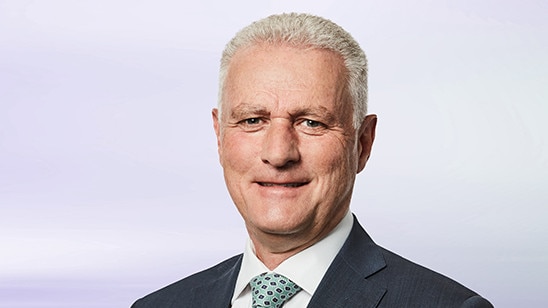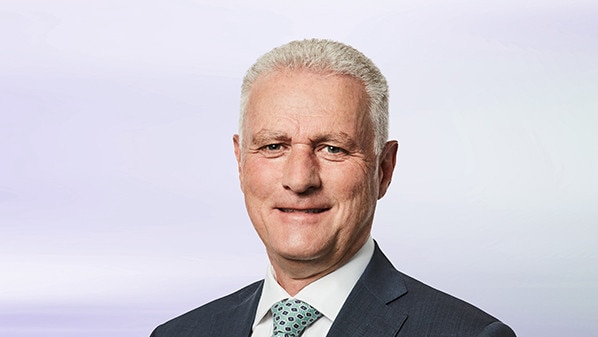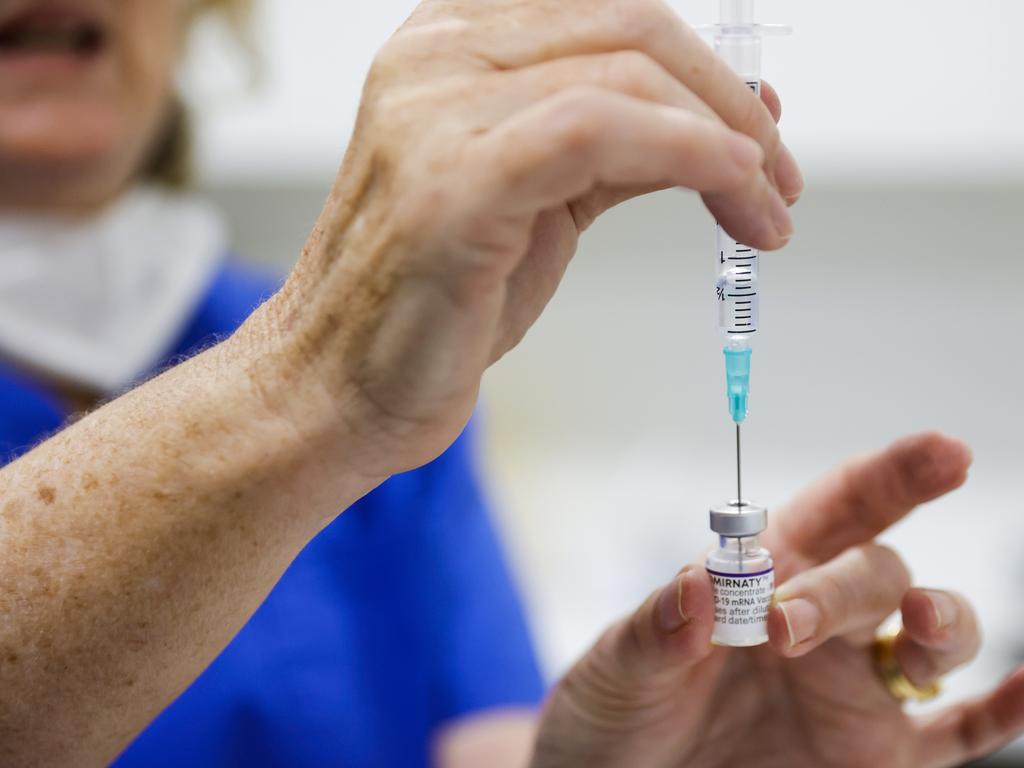Amcal owner Sigma appoints former Medibank CFO Michael Sammells as interim chair after Ray Gunston’s shock death
After Ray Gunston’s shock death at 64, Sigma has appointed former Healthscope and Medibank chief financial officer Michael Sammells as its interim chair.

Former Healthscope and Medibank chief financial officer Michael Sammells has been named interim chair of Australia’s biggest pharmaceutical distributor, Sigma Healthcare, after Ray Gunston’s sudden death.
Mr Gunston – who previously held senior roles at the AFL and was Tatts Group’s former chief financial officer – had a heart attack on Tuesday morning at his Southbank home. He was 64 and had led Sigma as chair since April 2020 after joining its board in 2010.
His death has prompted tributes from AFL commission chairman and former Wesfarmers chief executive Richard Goyder, who said Mr Gunston’s legacy included the league’s acquisition of Melbourne’s Marvel Stadium in Docklands. Outgoing AFL boss Gillon McLachlan said Mr Gunston was an “extremely valued member of the AFL executive”.
In a statement to the ASX, the board of Sigma, which has a market value of $614.4m, said Mr Gunston would be “remembered as a gentleman renowned for his honesty, integrity and genuine care, love and support for others”.
“Ray always acted in the best interests of shareholders and provided exceptional leadership to the board and Sigma management. He was renowned for his incredible work ethic, strategic thinking, financial acumen, and made a significant contribution to Sigma and the broader community,” Sigma’s directors said
“He will be dearly missed at Sigma. Our sincere condolences go out to Mandy, Jack, Kate and his extended family.”
In the past 24 hours, Sigma’s board has met and agreed to appoint Mr Sammells as interim chair. Mr Sammells was Medibank’s chief financial officer during its period as a government-owned enterprise from 2005 to 2011. The health insurer was later privatised in 2014 and listed on the ASX.
After Medibank, Mr Sammells joined Australia’s second biggest private hospital operator Healthscope as chief financial officer, a position he held for more than seven years until the group was sold to Canadian private equity titan Brookfield for $4.4bn and delisted from the ASX in June 2019.
Mr Sammells is also a non-executive director at AMP.
Sigma’s shares firmed 0.9 per cent to 58c on Wednesday compared with a 0.5 per cent slide across the broader sharemarket.

Mr Sammells’s appointment as interim chair comes as pharmaceutical supply chains have been under pressure, first from the 2019/20 summer bushfires and then the Covid-19 pandemic, while Australia’s biggest retailer Wesfarmers has entered the pharmaceutical business after acquiring Priceline owner, Australian Pharmaceutical Industries for $763m earlier this year.
Sigma had also bid for API but withdrew its offer last November after Wesfarmers secured a 20 per cent blocking stake in the company and Sigma’s biggest shareholder voiced strong opposition to the takeover.
At the time, Mr Gunston said API was “nice to have” and Sigma did not need to acquire it to pursue its growth strategy.
“It was sort of nice to have, not a must have,” Mr Gunston told The Australian last November.
“In terms of this (API) transaction, it was an option for us, but we’ve got exciting times ahead. The focus (now) is really around growing off the base of what we’ve been doing and looking to grow through M&A and/or organic growth, which our new CEO is quite excited about.”
Vikesh Ramsunder, former CEO of South Africa’s Clicks Group – which owns brands including The Body Shop, GNC and Claire’s – replaced long-serving Sigma CEO Mark Hooper earlier this year.
Mr Gunston had praised Mr Ramsunder for having a “strong retail focus”, which he expected to benefit Sigma, which also owns a portfolio of brands including Amcal and Guardian.
But Mr Ramsunder’s appointment coincided with the launch of a new enterprise resourcing planning (ERP) system and closure of its distribution centre at Rowville in Melbourne’s southeast in favour of a new facility at Truganina on the opposite side of the city. The introduction of the new system has sparked chaos across the company and its pharmacist partners, who have criticised the company’s reliability in delivering medicines and other goods under the ERP.
In March, Sigma said the ERP system – which had one-off implementation costs of $30m – leading to lost sales across its customer base that not even a spike in demand for Covid rapid antigen tests could offset.
As a result, the company reported a loss of $7.24m in the 12 months to January 31, compared with a $43.53m net profit in the previous year. Sigma had previously told investors the loss could be as much as $10m.
But Mr Ramsunder said at the time he expected the situation to stabilise by the end of April and be ironed out fully by January next year.
“The biggest challenge has actually been change management,” Mr Ramsunder said.
“It’s not so much the stability of the system or technical changes. People are doing a lot of new things. The system is new, they’re learning, they’re adjusting and teams have trained during Covid … (with) restrictions.
“So we’re having to go through a process again. Getting people to be proficient using the system, and it takes time because people learn and adjust at different pace.”







To join the conversation, please log in. Don't have an account? Register
Join the conversation, you are commenting as Logout